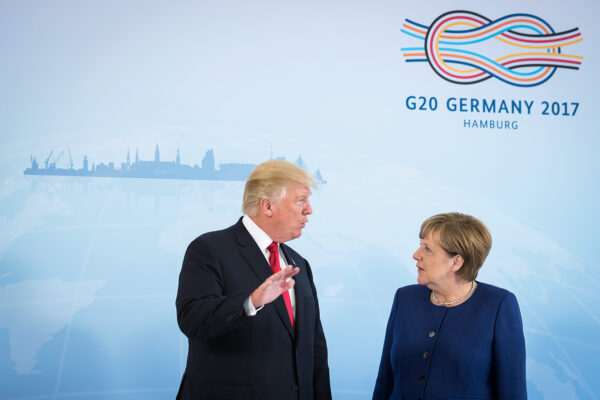
In America, the German election is mostly being ignored.
Our media today are tightly focused on the ongoing controversy regarding President Donald Trump, NFL players, free speech and the national anthem.
In previous weeks, the endless health-care saga and unusually hasty hurricane season stole the headlines.
These issues are dramatic and tangible to Americans. The German election is viewed more as procedural than exciting or impactful.
Mainstream coverage
Here are how the major American news websites are covering the issue as of mid-afternoon:
- CNN: “Angela Merkel set for fourth term as far right surges”
- The New York Times: “Merkel on Track for Fourth Term After German Election: Exit Poll”
- Fox News only has an opinion article about the strength of Germany’s anti-immigrant party
- MSNBC doesn’t even have the story on its front page
In other words, Americans know and probably understand the basics — Merkel won, the far right made a solid showing — but that’s about it.
Low stakes
The usual critiques of American attention spans and insularity apply here. But it can also be said that the parliamentary nature of Germany’s election makes it difficult for Americans to understand and relate to the process.
Moreover, the absence of a viable radical alternative to Merkel, akin to France’s Marine Le Pen, makes the stakes seem low. Most Americans don’t know or care whether the Christian Democrats or the Social Democrats win.
If the far-right Alternative had stood a chance of taking power, the parallels to the 1930s would have raised eyebrows and played right into dormant American stereotypes.
What can be said, despite the lack of interest?
We Americans tend to view everything that happens in the world through the lens of our own politics.
Merkel is viewed as an antagonist to Trump. Her reelection indicates that Germans don’t think much of the American president’s criticism of their own leader.
If there is one policy Americans associate with Merkel, it is her intake of a large number of Syrian and other refugees. Conservatives have characterized her immigration policy as grossly unpopular. The fact that Merkel has paid only a small electoral price for this supposedly horrible decision may render that commentary less effective.
Americans also tend to view Europe monolithically, especially in terms of politics. So if anything conclusive can be said, the German elections seem to have restored a sense of general European stability and political continuity, especially compared to the circus that was the Brexit vote and the French presidential elections — or the spectacle that is our own politics.
